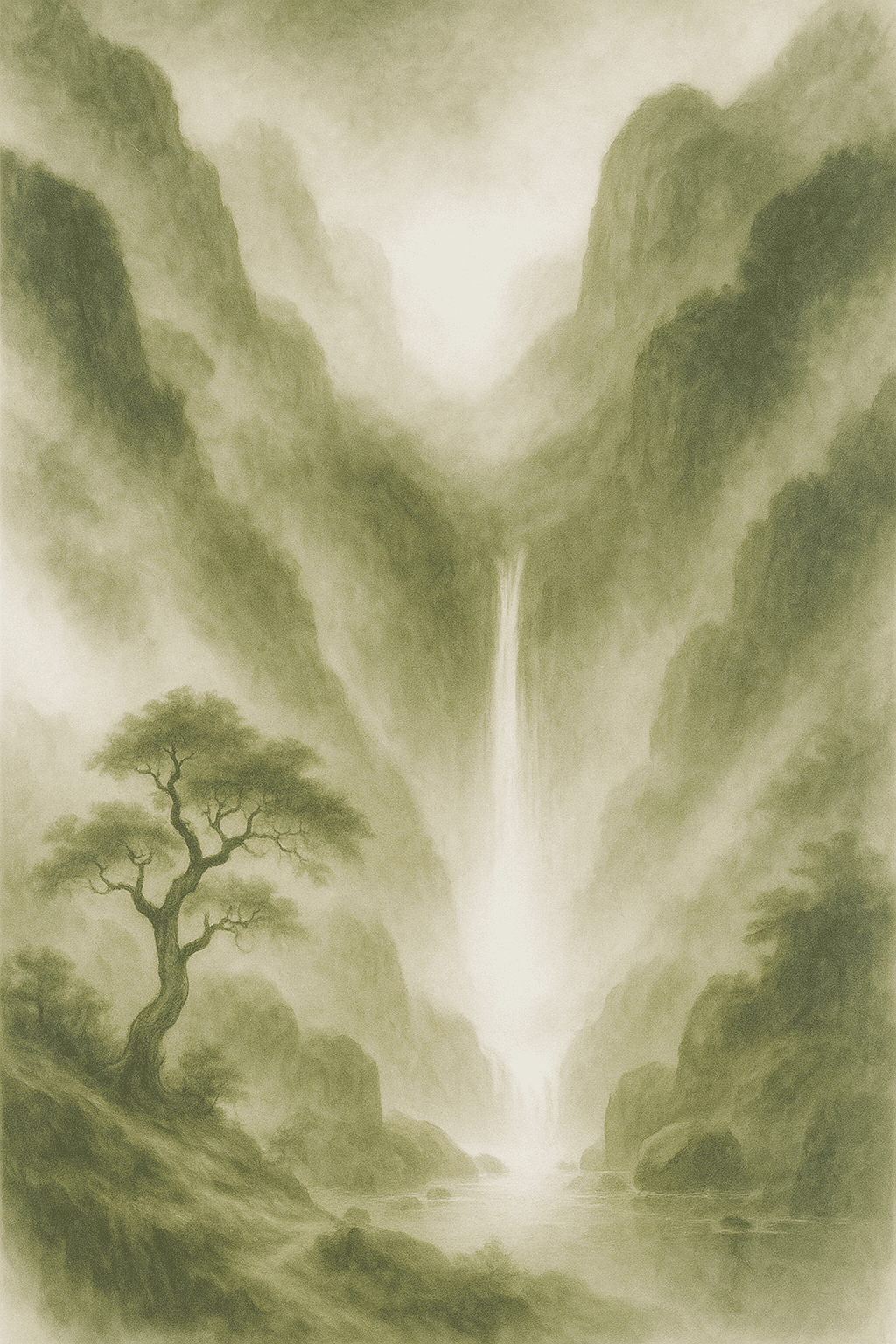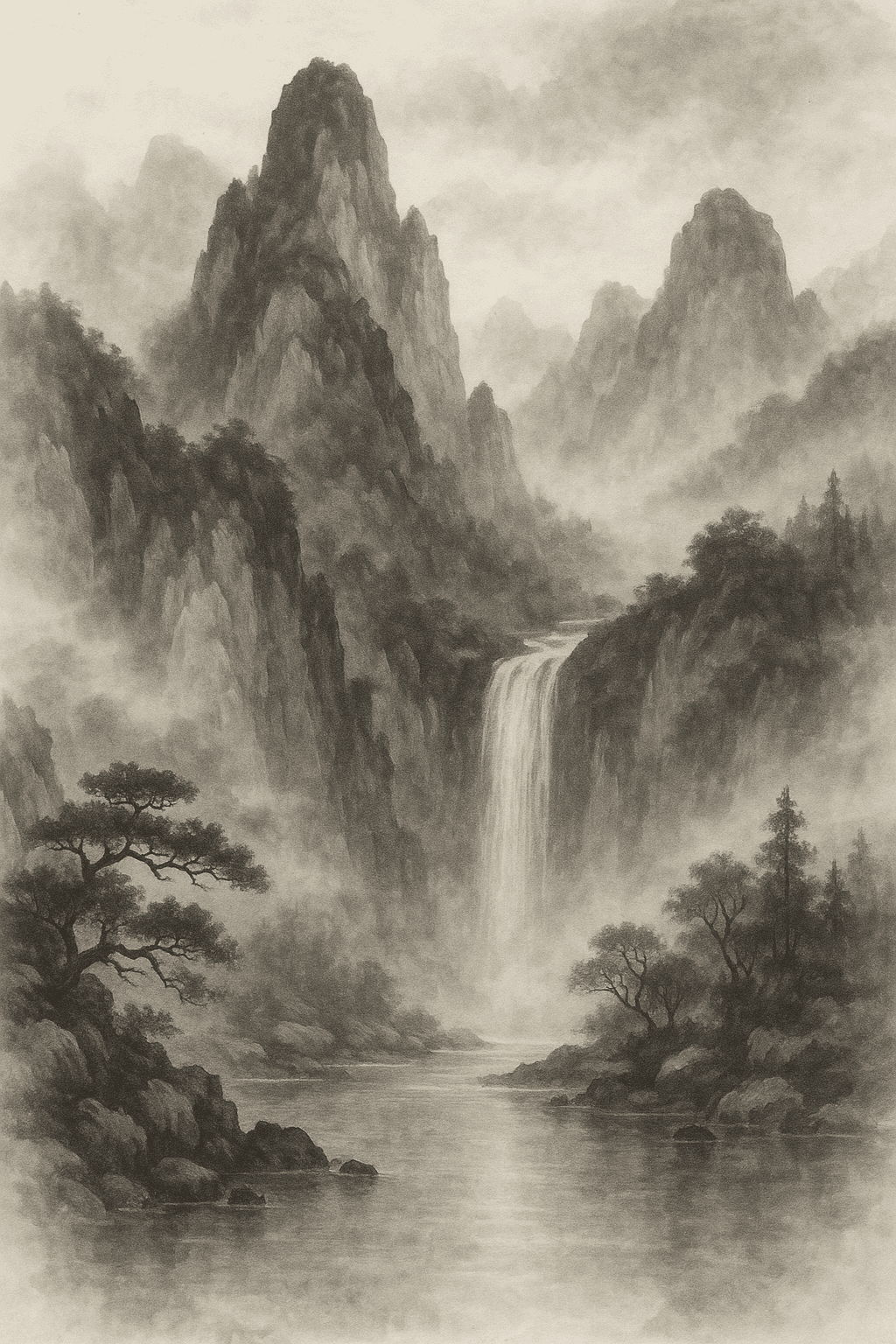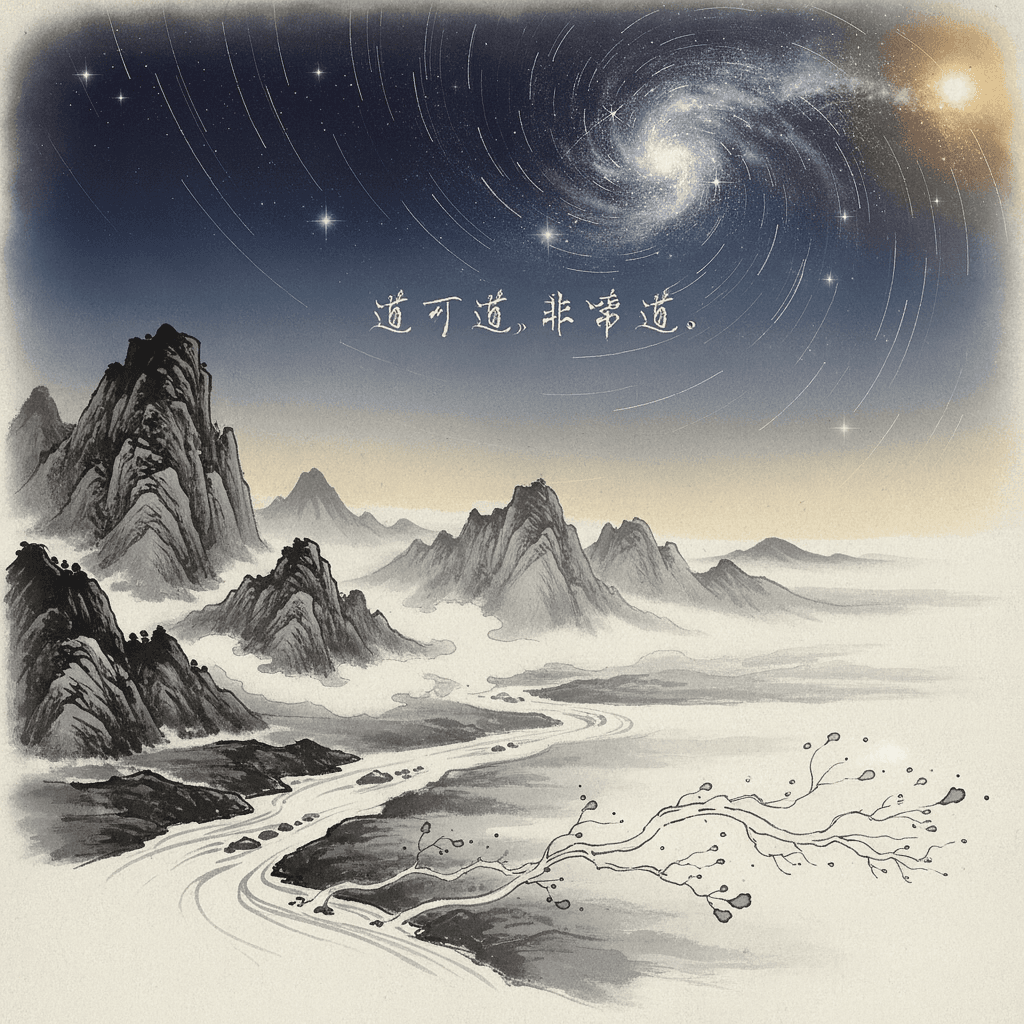Dao De Jing
The Dao De Jing (Tao Te Ching) is a classical Chinese text attributed to Laozi, focusing on the philosophy of Taoism.
Quotes in Dao De Jing
Quotes: 15

Why Heaven and Earth Endure: Selfless Continuity
Crucially, selflessness in Daoism is not passivity but nonattached action—wu wei—doing what accords with the situation without grasping for credit. This resonates beyond China: the Bhagavad Gita 2.47 urges work without attachment to its fruits, and Stoics advise focusing on virtue rather than outcomes. By easing the ego’s agenda, effort becomes less brittle and more adaptive. Consequently, projects weather setbacks because identity is not staked on immediate results. [...]
Created on: 11/10/2025

Root of Heaven: The Mysterious Female Gate
“Unceasing, as if it were there; use it, and it never fails” clarifies the paradox of emptiness: availability without depletion. Laozi’s Chapter 11 illustrates this through the hub’s emptiness and the room’s hollow—utility born of what is not filled. Emptiness is not lack; it is capacity. Practically, this underwrites wu wei, “effortless action.” When one acts from the open center—neither forcing nor resisting—energy recycles rather than burns out. Like a spring feeding a valley, the more it is drawn upon with alignment, the more clearly it flows. Misuse exhausts; attunement renews. [...]
Created on: 11/10/2025

Emptiness as the Inexhaustible Source of Being
Extending the idea, Laozi sketches a quiet cosmology: “The Dao gives birth to One; One gives birth to Two; Two gives birth to Three; Three gives birth to the myriad things” (Daodejing, ch. 42). This is not a creator deity but a generative process—an unfolding order that invites rather than imposes. Modern readers sometimes draw analogies to the quantum “vacuum,” a seething plenum of fluctuations; while only a metaphor, it echoes Laozi’s insight that apparent emptiness can teem with potential. [...]
Created on: 11/9/2025

Impartial Heaven, Straw Dogs, and the Sage
From here, the text deliberately contrasts Confucian ren (benevolence) with a broader impartiality. Confucius prized ren as humane concern, but Laozi warns that moral programs can slip into favoritism or display. He underlines this elsewhere: “When the great dao is abandoned, there is benevolence and righteousness” (Daodejing, ch. 18), implying that elaborate virtue-talk often compensates for lost naturalness. Later, Wang Bi (3rd c.) glossed “not benevolent” as “without partiality,” indicating a clarity that helps rather than a coldness that harms. The point is not to suppress kindness; it is to prevent kindness from becoming a tool of vanity, coercion, or selective compassion. [...]
Created on: 11/2/2025

The Inexhaustible Dao and Its Gentle Power
From this capacious emptiness, Laozi moves to origin. When he says the Dao seems to be the ancestor of the myriad things and to precede the Lord of Heaven, he places it before gods and rulers alike. Daodejing 25 echoes the claim with an image of a formless and complete source, the mother of the world, named Dao only for convenience. The point is not theology but priority: process before persons, pattern before power. Because the Dao is prior, it grants legitimacy without itself demanding worship. This humility of the source cautions against absolutizing any single authority; even Heaven is downstream of the Way. [...]
Created on: 10/27/2025

Quiet Governance and the Power of Non-Action
In this light, emptying minds is best read as uncluttering the heart-mind (xin) from inflamed wants and cunning plots, not as promoting ignorance. Classical translators note that filling bellies signals material sufficiency, while strengthening bones implies basic health and resilience (see D. C. Lau, 1963). The pairing is deliberate: reduce ideological agitation and satiate basic needs, and social calm follows. Weakening ambitions then means cooling predatory striving that treats public life as a ladder, rather than extinguishing humane aspiration. This physiological and psychological framing grounds politics in the body: where bellies are full and bodies sturdy, extravagant desires lose their grip, and governance is spared the turbulence of chronic scarcity. [...]
Created on: 10/27/2025

Naming the Unnamable: Laozi on Mystery and Manifestation
How does one step through? Daoism points to wuwei—effortless action—where skill and situation fit like hand to glove. Zhuangzi’s Cook Ding describes learning to carve by spirit, not brute force: “Perception and understanding have come to a stop; my spirit moves where it wants” (Zhuangzi, ch. 3). This is not passivity; it is precise responsiveness, guided by the grain of things. In such flow, desire is not eliminated but quieted, allowing the mystery to guide the knife through the seams of manifestation. The result feels wondrous because action aligns with the world’s own articulations, revealing unity in the midst of multiplicity. [...]
Created on: 10/26/2025